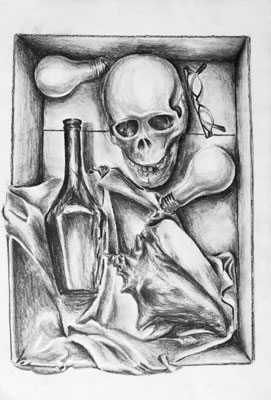All Nonfiction
- Bullying
- Books
- Academic
- Author Interviews
- Celebrity interviews
- College Articles
- College Essays
- Educator of the Year
- Heroes
- Interviews
- Memoir
- Personal Experience
- Sports
- Travel & Culture
All Opinions
- Bullying
- Current Events / Politics
- Discrimination
- Drugs / Alcohol / Smoking
- Entertainment / Celebrities
- Environment
- Love / Relationships
- Movies / Music / TV
- Pop Culture / Trends
- School / College
- Social Issues / Civics
- Spirituality / Religion
- Sports / Hobbies
All Hot Topics
- Bullying
- Community Service
- Environment
- Health
- Letters to the Editor
- Pride & Prejudice
- What Matters
- Back
Summer Guide
- Program Links
- Program Reviews
- Back
College Guide
- College Links
- College Reviews
- College Essays
- College Articles
- Back
How did the Black Plague impact the lives of the Europeans?
The rolling hills and meandering streams of abundant Europe cover over a dark past; a mass grave of corpses young and old. The plague that killed them, aptly named the “Black Death,” haunted the streets throughout the fourteenth century to erase one-third of Europe’s population. Tremendous pain and suffering resulted in bringing humanities to a halt. However, the event opened window of new age thinking known as the Renaissance. Nonetheless, Europe remained forever scarred, and the plague impacted the way Europe viewed religion, treated relationships, and fought war.
In the past, the Church had grown to a power in which all aspects of believers’ lives revolved around prayer. Since the Church emphasized that the afterlife was more important than life on Earth, the medievals looked to the Church to determine what was right or wrong in order to gain salvation. When the plague hit, desperate citizens believed that the sickness was a punishment from God. They turned to the Church for help, but the plague only revealed the Church’s human side. Three factors led to the major decrease in belief: the clergy could not aid the suffering, the replacement priests were not as educated, and Church officials stayed rich by charging for their services. In addition, fanatics claimed to have discovered a cure for the Black Plague. For example, during the Flagellant Movement in 1348, men would go town to town whipping themselves with leather thongs in order to purge themselves of sin. These were all seeds for the Reformation Movement led by Martin Luther.
The Black Plague exposed the darkness within human beings, with written examples of how doctors, clergy, and civil servants refused to help the sick for their own well being. The most traumatic symptom of the plague was its ability to disintegrate the idea of a family. Many accounts of the plague, such as Boccaccio’s Decameron, describe the abandonment of family members, especially children. Europe’s society had forever survived on the strong ties to family, and medieval authors viewed this abandonment as humanity’s lowest point. On the other hand, the Black Plague flipped feudalism on its back by breaking the relationship between serfs and their landlords. Serfs who had survived were no longer tied to the land. Some serfs moved to the city and filled up jobs. Others were able to ask for better wages and working conditions from their landlords. Historians mark this as the base coat for capitalism.
In the midst of the turmoil, Europe was suffering through another plague. England and France were fighting the Hundred Years’ War for control of the French throne. Some historians consider the end of the Hundred Years’ War as the end of the Middle Ages. Before the plague, the medieval world focused on a code of chivalry. With the Black Plague sending the Church into a world of doubt, chivalry and its religious ideals crumbled. This changed the way the Hundred Years’ War was fought. The longbow, called the “machine gun of the Middle Ages,” was cheap and easy to make. The English used the longbow to win the battle of Agincourt. This weapon replaced the heavy armour as well as the Knight’s honor of prior wars and battles.
One third of a continent died within a hundred years. In an age where technology and medicine are immanent, we can look back at history and see that the virus itself was only half of what killed millions. It was the darkness inside us that helped it spread, and it was our curiosity to find the light again for a new age.

Similar Articles
JOIN THE DISCUSSION
This article has 0 comments.

My history class is all for debate. We wrap up each unit with a Socratic seminar to discuss how we feel about the topics at hand. Since my sophmore year has just begun, my teacher started this debate (it eventually evolved into a war) whether history class should be required at my high school while the arts and certain sciences were not. The class was immediately divided, with the people against history class arguing that all we do is just go into more depth each year on the same historical events. The pro-history half argued George Santayana's quote "Those who cannot learn from history are doomed to repeat it." However, when I was offered my turn to speak, I rephrased that famous quote, "We should study history in order to predict what will happen in the future, and prepare for it accordingly." Think about it: the Black Plague reduced mankind into its most primitive and instinctive state, but when the Renaissance came about, it was like rediscovering fire. What will happen to Africa once the Ebola outbreak distintegrates? Check your textbook to find out.